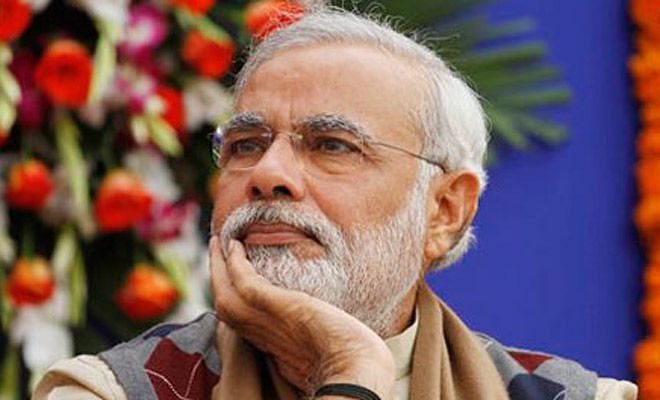The Indian election and the BJP ranting: We should close ranks
The Indian election and the BJP ranting: We should close ranks

THE final denouement of the Indian election is a matter of enormous interest in the political and intellectual circles in Bangladesh. Indian elections have engendered as much interest as apprehension in this country for various reasons. The take on the outcome of the Indian elections varies depending on whether one is disposed towards the AL or towards BNP, or whether one is a dispassionate and objective observer of the bilateral issues and the outcomes of the dynamics that plays out in the Bangladesh-India relationship.
With the BJP-led alliance all but sure to come to the helm in India, (whether Modi will be the party's final choice as PM is another matter) for the AL the change will be significant in that there would be an end of the reign of a party in India which had a special dispensation towards the AL and which chose to formulate its policy vis-à-vis Bangladesh based on its orientation with that party. And one cannot be faulted if one viewed India's stand on the January 5 election, particularly the statement of the Indian foreign secretary, as being one that underwrote the sham national elections. It also demonstrated the stake that the Congress had in an AL win.
However, is there a stake for the AL in the Congress retaining power in the centre and whether the BJP-led alliance comes to power? Will the new government in New Delhi deliver for AL what the Congress did not? In fact had there been a proper election in Bangladesh on January 5 the issue of Tipai, Teesta and the LBA, India's failure to deliver on Teesta in particular, would have influenced the vote tremendously. To put it mildly, the AL was badly let down by the Congress government. The actions that the AL government has taken to meet the concerns of India, to risk the country's infrastructure to allow passage of Indian oversized containers across Bangladesh territory, have not been reciprocated by the Congress government. Will the BJP reciprocate?
As for the BNP, some aver that it is waiting for the election results in India. One wonders why. It would be a great folly on its part if the BNP thought that there would be reorientation of policy by the new incumbent in India although BNP might take some comfort from the fact that the bilateral relationship thenceforth would not be modulated by party to party dynamics, rather it would be a state to state affair.
Although it is perhaps a waste of space to comment on the remarks of chauvinists like Swami or Modi related to Bangladesh, the character of the issues they refer to needs a riposte based on consensus cutting across party line. Unfortunately, our divided stand on these makes it so much more difficult for Bangladesh to pursue these effectively. It is both callow and crass to term any rightful demand that is made to India as being anti-Indian. But that is what we have seen being expressed by our ruling party members.
The new government in India will certainly ratchet up certain issues, particularly the so-called illegal migration and infiltration. And on both counts the Bangladesh government should take a firm position. Firstly, the phrase 'illegal migration' in this case is a misnomer since the two countries do not have a 'legal migration' regime. Without discarding the possibility of cross border movements that is seasonal as well as environmental, and such movements are to both sides, the figures of 'millions' of illegal Bangladeshis in India is too ludicrous to be believable.
Secondly, Swami should answer how, with almost the entire stretch of the Indo-Bangladesh border fenced off, such large scale migration or even infiltration, enough to have changed the demographic pattern and secular ethos of India, according to him, have occurred. People move across to seek greener pasture. Is the pasture across the border greener? Certainly the level of economic development in the Northeast or West Bengal does not suggest that these regions in India are exactly flowing in milk and honey. And do we have to take lessons on secularism from a person who demands that India be declared a Hindu Rashtra in which non-Hindus can vote only if they proudly acknowledge that their ancestors were Hindus. Perhaps Swami is not aware that the state principle of secularism was enshrined in Bangladesh's constitution well before it was in India's.
The rhetoric emanating from the BJP hawks like Modi and Subramanian Swami make it imperative for the political parties in Bangladesh to close ranks and arrive at a broad consensus on how to deal with these issues, which have been made more intractable because of India's internal politics.
The writer is Editor, Op-ed and Defense & Strategic Affairs, The Daily Star.